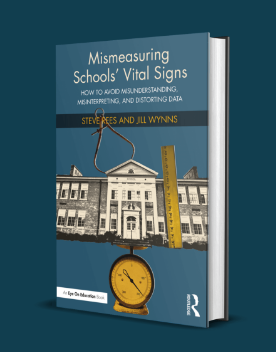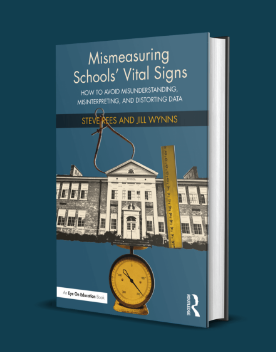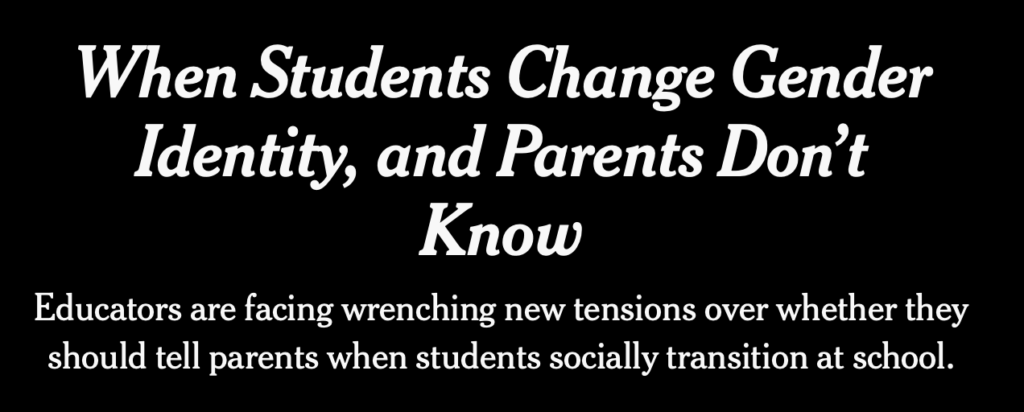Happy St. Patrick’s Day.
Today, reader reactions to two recent posts, a couple of items not by me you may have missed, and a serious fish.
Some selected reactions to the recent post on funders and risk. A few funders wrote to say, ‘hey we’re doing this!’ A few shared interesting examples of different kinds of grant making methods. And that’s all great. I wrote,
Some funders are obviously doing this – in the political and practice space. But it’s far from the norm.
This summarizes a more common refrain, a former funder wrote,
Great piece on risk and philanthropy. It’s really scary how conservative philanthropy has become from an innovation and risk perspective. I think a lot retrenched during Covid in a back to the basics, fill in the gaps mindset. It’s truly shocking. When I was a funder, I lived through a transition to outcomes focused grantmaking. I agree, measures and outcomes are very helpful, but as we started to go through elaborate Expected Return calculations with our consultants (that were super loaded with false precision btw, and could be easily discredited by an amateur), I found my strategies getting more and more conservative because of the need to justify every aspect with numbers and inherently put my claims/reputation on the line for each step. Learning and education are notoriously harder to measure than say climate or health….Sadly, I see this throughout foundations now, and am also the recipient of it myself through the grants I receive. I see many colleagues that struggle with it, and it can often squeeze the risk and innovation out of projects.
A longtime journalist and observer of the space wrote about what they see as a consequence,
The prevailing winds of fashion within K-12, combined with a terrible insularity and a conformist intellectual environment, made for a sick environment before 2016. But now it’s worse. Name-calling instead of reasoned argument. Silence in the face of questionable ideas instead of criticism. Cancelling instead of critique.
An operator wrote,
I like the idea of more risk taking, and was going to respond with your third footnote. Somehow foundations without accountability in my experience can’t seem to resist making market choices or affecting market dynamics.
A philanthropic c-level person wrote,
Want to send your latest blog post to every program officer I know, but that would be a bit too passive-aggressive.
Here’s some reaction to last week’s look at why Democrats are having a hard time on parental rights:
A philanthropic sector person wrote,
Seriously, this. I may just be getting older and crankier (it’s probably partly that), but the interest some progressives have in discrediting parents’ perspectives on educating their own children is really wild. Also, unfortunately my interest in “trusting the experts” stopped around the time that the entire world opened up post-pandemic and my toddler was still being forced to wear a mask at daycare.
Very much agree with the points related to transparency around schools – namely how difficult it is to find out what curriculum and approaches are being used. We have a child starting kindergarten in the fall and it’s been very challenging to learn more about what materials they use and whether they are aligned to anything evidence-based.
Jed Wallace – who I will be doing more podcasting with soon – noted,
Red blue disconnect has so much nuance that people aren’t getting, and generally there’s way too much focus on surface rather than substance. The harm in that is not just superficiality, but some of the substance ends up being worse than it needs to be because it’s not being considered deeply. We end up wasting time screaming at one another rather than discussing/debating.
Elsewhere: Some of the data in this EdChoice/Morning Consult deck challenges various shibboleths around this sector.
Ruy Teixeira, the Democratic political demographer, was sort of voted off the island for not toeing the party line and now works at AEI. That’s too bad, his work is insightful and I highlight it around here from time to time. This passage in a recent analysis on voting behavior is important,
Which brings us to the key issue for many Asian voters: education. It is difficult to overestimate how important education is to Asian voters, who see it as the key tool for upward mobility—a tool that even the poorest Asian parents can take advantage of. But Democrats are becoming increasingly associated with an approach to schooling that seems anti-meritocratic, oriented away from standardized tests, gifted and talented programs and test-in elite schools—all areas where Asian children have excelled. In New York City, Democrat Bill de Blasio’s 2018 proposal to do away with the rigorous test that governed admission to the city’s elite high schools in the name of “equity” became a defining issue in the Asian community.
It does not seem mysterious that Asian voters might react negatively to this approach. In fact, it would be somewhat baffling if they didn’t. Yet Democrats do seem to have great difficulty admitting the nature of the problem they now face with burgeoning numbers of these voters.
Right now the Republicans have a base problem and the Democrats have an activist problem. The party that can solve, at least to some extent, for their problem sooner seems likely to do well in national races. Education and adjacent issues are a key indicator and fulcrum of where things stand.
Part of that basket of issues is the pronounced political shift left the past few years, which has affected schools. You may like that shift in whole, in part, or not at all. It’s a free country. But people keep denying that it’s happening. That’s an affront to common sense and gets in the way of serious conversations about what’s going on. You have people who were not in favor of gay marriage a decade ago now arguing that schools know better than families on gender questions. Wherever you come down on those issues, you can’t deny that’s real velocity. Here’s a good take on all that.
It’s Friday, Whiteboard Advisor’s Ben Wallerstein caught this ridiculous fish recently,

You can find hundreds of pictures of education people with fish via this link.








